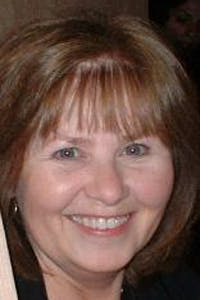What can hygiene students teach experienced RDHs?
By Cathy Hester Seckman, RDH
August 22, 2013
What would a student be able to teach us?
That was the question in our minds as I drove to the University of Pittsburgh last spring with my sister Andrea Adkins, a hygienist herself, to have our teeth cleaned by two dental hygiene students. Andrea would see her niece, Jenna Adkins, and I would see Liz, Jenna’s friend. We were also scheduled with a younger student, Katelyn, for study models.
Hygienists strongly believe there are too many hygiene schools, too few jobs
Both of us graduated from West Liberty State College (now West Liberty University) in the early ‘70s – the Mesozoic Era, as I like to call it. Those were the days of white dress uniforms and support hose, pump-up chairs, and belt-driven handpieces – years before PPE and disposables. We were excited to see how dental hygiene education had changed to reflect more than 40 years of advances in science, ergonomics, technology, and equipment.
We saw all of that and more, but I also encountered one thing I didn’t expect. “You know what I took away from this?” I said on the way back home. “I have a new appreciation for lifelong learning.”
What did you know when you graduated from hygiene school? You knew dental anatomy upside down and backwards. You had studied the science. You were technically competent in scaling and polishing. You understood infection control. You could give a textbook answer for any hygiene-related question. And that was about it, wasn’t it?
How will your knowledge base be after 10, 25, or even 50 years in real-world practice? You'll know:
- When to throw protocol out the window and customize an appointment for a patient in need
- How to pull out every instrument, every product, every bit of knowledge you’ve acquired since boards, and use them to provide better care
- Every option available for every concern of your patients, not just the options the sales reps talk about
- How to do your own research on new products, investigate the claims, order the samples, try them yourself, and decide which ones are worth your time and investment
- Exactly what will hurt your patient, and how to avoid it
- Exactly what will hurt you, and how to avoid it
- Enough to have a positive attitude about investing in your own career
- Which chair adjustments you need to make for tiny patients, large ones, those with compromised mobility, and those with handicaps
- How to coax a reluctant three-year-old through an appointment without losing your cool
- How to clean up vomit
- How to use Sea Bands, salt, Chloraseptic, or half a dozen other adjuncts and techniques to minimize gagging
You get the point, don’t you? No amount of education, even cutting-edge, up-to-the-minute education, can prepare you for the real world. All you can do is take a deep breath and walk out into that world with all the confidence you can muster.
Liz, my student hygienist, seemed to have plenty of confidence, which speaks well of her education. The University of Pittsburgh offers dental hygiene students the ability to rotate through its dental school, which includes all specialties, a stand-alone anesthesia department, and a special needs center. Students are also able to rotate through a VA clinic, a county health department, and a children’s hospital. Hygienists can graduate in two years with an associate degree. If they choose to take classes year round and work very hard, they can graduate in two years with a bachelor’s degree.
Being part of the larger School of Dental Medicine is a plus for the hygiene program, but there are some limitations. Hygiene students are not required to purchase loupes, says director Angelina Riccelli, because the dental students are not required to have them. For any high-end equipment that the dental school does not own, like a laser or perioscope, student hygienists receive only didactic training.
I sat down in Liz’s chair at 10:15 a.m. and was finished at 12:30. That included about 15 minutes for Katelyn, the younger student, to take three impressions (she missed the lower anterior vestibule on her first try). It seemed as though half the appointment time was taken up fiddling with the computer. Liz signed in, completed my health history on the screen, then accessed Lexi-Comp to look up every single medication and copy its side effects into my health history. Then an instructor had to come along, sign in, review the health history, and quiz her student about it. The instructor and Liz signed out, and then Katelyn and the instructor had to sign in to take the impressions and sign back out afterward. Liz and the instructor then signed back in.
Each student has their own cubicle with a chair, operator stool, corner desk with computer, mobile tray with handpiece and air/water, and a countertop unit with drawers behind the chair. It was an awkward setup. While Liz was doing the soft tissue exam and charting restorations, she would repeat the findings to herself, "Occlusal amalgam on 18, MO on 19, nothing on 20-21," then get up, walk over to the computer to enter them, come back, sit down, and memorize a few more findings. Luckily, another student came in to help with perio charting.
Liz didn't use the mobile tray for instruments because she said it was too difficult to move it around and avoid the cords. She's right-handed, and the countertop unit was to her left, so she did a lot of reaching. She also kept the prophy paste on the tray, so had a long reach for it, too. She doesn't like using prophy rings because the cup pops out of them so easily. I asked about her choices, and she said breezily that it was just easier that way. "When you get into the world," I said, "working all day every day and seeing what other hygienists use, you'll expand your horizons a lot. Easier isn’t always better."
Liz enjoys clinical hygiene, and plans to stay in it indefinitely, though she admitted that no one knows what the future will hold in a career. According to Ms. Riccelli, 100% of Pitt hygiene graduates are working at least part-time in the field one year after graduation.
Leaving Pittsburgh for the drive back home, Andrea and I agreed that it was a very good thing that we take plenty of CE courses, that we go to big conferences, that dental hygiene magazines come free in the mail, and that e-mail lists and forums for hygienists exist. Where would we be without all the expertise we've shared with each other and picked up on our own over the years? We'd be right back there with Liz and Katelyn and Jenna – with just enough knowledge to give our patients basic care and cause ourselves work-related injury. Life-long learning, I'm convinced, is at least as important for quality dental hygiene care and a safe workplace as traditional schooling.


